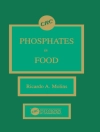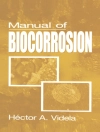Functional foods and nutraceuticals are food products that naturally offer or have been modified to offer additional health benefits beyond basic nutrition. As such products have surged in popularity in recent years, it is crucial that researchers and manufacturers understand the concepts underpinning functional foods and the opportunity they represent to improve human health, reduce healthcare costs, and support economic development worldwide.
Functional Foods and Nutraceuticals: Bioactive Components, Formulations and Innovations presents a guide to functional foods from experienced professionals in key institutions around the world. The text provides background information on the health benefits, bioavailability, and safety measurements of functional foods and nutraceuticals. Subsequent chapters detail the bioactive components in functional foods responsible for these health benefits, as well as the different formulations of these products and recent innovations spurred by consumer demands. Authors emphasize product development for increased marketability, taking into account safety issues associated with functional food adulteration and solutions to be found in GMP adherence. Various food preservation methods aimed at enhancing the quality and shelf life of functional food are also highlighted. Functional Foods and Nutraceuticals: Bioactive Components, Formulations and Innovations is the first of its kind, designed to be useful to students, teachers, nutritionists, food scientists, food technologists and public health regulators alike.
Jadual kandungan
Foreword.- Preface.- Part I: Introduction to functional foods and nutraceuicals.- Chapter 1: Functional foods and health benefits.- Chapter 2: Bioavailability of Nutrients and Safety Measurements.- Part II: Components of functional foods.- Chapter 3: Polyphenols and carotenoids as functional Bioactives.- Chapter 4: Bioactive carbohydrates and sources.- Chapter 5: Bioactive peptides and sources.- Chapter 6: Fats and oils as sources of bioactive molecules.- Chapter 7: Micronutrients fortifications: Vitamins and minerals.- Chapter 8: Usefulness of prebiotics, probiotics, and synbiotics in improving health status.- Chapter 9: Cereals and grains as functional food in Unani system of medicine.- Chapter 10: Soya beans and other plant protein products.- Chapter 11: Honey., Chapter 12: Mushrooms.- Chapter 13: Beverages: Cocoa and other caffeine products.- Chapter 14: Milk and milk products.- Chapter 15: Fruits and vegetables.- Chapter 16: Fish and fish products.- Chapter 17: Medical foods and infant formulas.- Part III: Safety Concerns and way forward.- Chapter 18: Nutraceutical stability, adulteration and way forward.- Chapter 19: Good manufacturing practices and safety issues in functional food industries.- Chapter 20: Food preservation concerns
Mengenai Pengarang
Chukwuebuka Egbuna is a chartered chemist, a chemical analyst, and an academic researcher. He is a member of the Institute of Chartered Chemists of Nigeria (ICCON), the Nigerian Society of Biochemistry and Molecular Biology (NSBMB), the Society of Quality Assurance (SQA) (USA) and the Royal Society of Chemistry (RSC) (United Kingdom). His primary research interests are in phytochemistry, food and medicinal chemistry, analytical chemistry, and nutrition and toxicology.
Genevieve Dable Tupas is a doctor of medicine and a clinical epidemiologist. She is currently the Director for Research and Publication, and Head of the Research Center of the College of Medicine, Davao Medical School Foundation, Davao City Philippines. She is also an associate professor of the Department of Pharmacology of the same institution. Her research interests include natural products research, clinical epidemiology and their translation to benefit the community.












